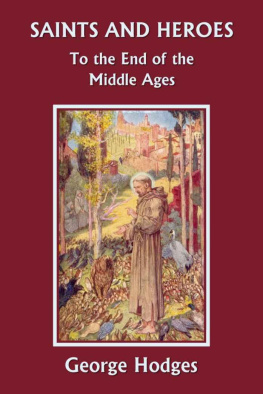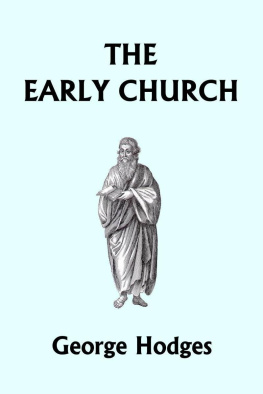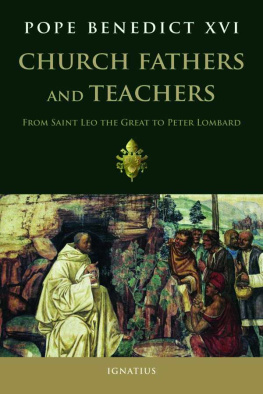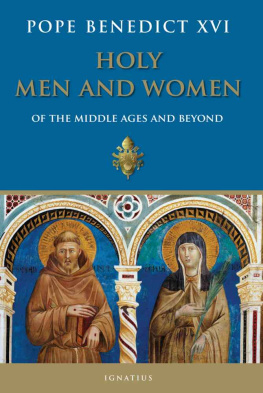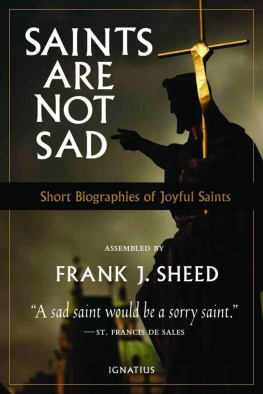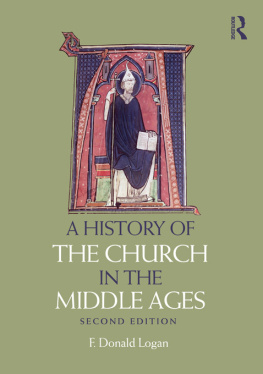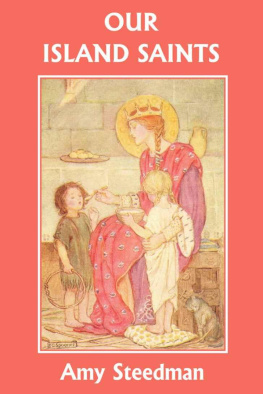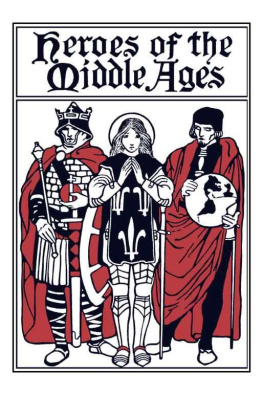Saints and Heroes to the End of the Middle Ages
by
George Hodges
Yesterday's Classics
Chapel Hill, North Carolina
Cover and Arrangement 2010 Yesterday's Classics, LLC
All rights reserved. No part of this book may be reproduced or retransmitted in any form or by any means without the written permission of the publisher.
This edition, first published in 2010 by Yesterday's Classics, an imprint of Yesterday's Classics, LLC, is an unabridged republication of the work originally published by Henry Holt and Co. in 1911. This title is available in a print edition (ISBN 978-1-59915-093-2).
Yesterday's Classics, LLC
PO Box 3418
Chapel Hill, NC 27515
Yesterday's Classics
Yesterday's Classics republishes classic books for children from the golden age of children's literature, the era from 1880 to 1920. Many of our titles are offered in high-quality paperback editions, with text cast in modern easy-to-read type for today's readers. The illustrations from the original volumes are included except in those few cases where the quality of the original images is too low to make their reproduction feasible. Unless specified otherwise, color illustrations in the original volumes are rendered in black and white in our print editions.
Contents
Cyprian
200-258
J UST about the time when Cyprian was born in Carthage, Perpetua and Felicitas amazed the people. Everybody was talking about it.
Perpetua was twenty-two years old. Cyprian's father and mother must have known her very well. The two families belonged to the same high-born and wealthy society. They were all pagans together. But Perpetua had become a Christian. It was as if, in Russia, the daughter of a noble family should become an anarchist.
She joined the Christians. Then spies broke in upon a secret meeting. She and her companions were brought before the court; and they were all sentenced to be tortured till they changed their minds, or died. Felicitas, one of the company, was a slave girl. Many of the Christians belonged to the slave class. The new religion was largely recruited from the poorest people. This fact made Perpetua's association with them so much the more monstrous. Perpetua's family and friends implored her to renounce her Christian faith. They brought her little baby and begged her, for the child's sake, to sacrifice to the gods, and come home. But she refused. The young men who were arrested with her were thrown to the lions. Perpetua and Felicitas were tossed by a wild cow, and finally killed by the gladiators.
Amidst such scenes, Cyprian was born in Carthage. In his childhood, the Christians were still in constant peril. They were daily liable to insult, hooting, and stoning in the streets. The emperor Septimius Severus made it a crime under the law to invite anybody to join the Christian society. There was even a proposition to deny to the Christians the right of decent burial.
Then the emperors became too busy with other matters to pay much further attention to the spread of Christianity. Some of them were occupied with vicious pleasures, some with civil strife, some with the increasing dangers of barbarian invasion. There was a long peace. Maximin, indeed, broke it in 235; but otherwise it extended from the beginning of the young manhood of Cyprian till he was of an age of between fifty-five and sixty years.
When the persecution began again, in 249, in the reign of Decius, Cyprian himself had become a Christian.
He had first chosen the profession of the law, and attained a wide reputation for his eloquence, and had become a senator. He was rich both by his own efforts and by his family inheritance and lived handsomely in a great house, in the midst of extensive grounds. He had the esteem of his fellow citizens. He seemed to be in possession of all that makes life pleasant. He had reached the age of forty-five, when one is easily contented with a comfortable estate, and indisposed to change.
About that time he wrote a letter to his friend Donatus. "Donatus,"he said, in effect,"this is a cheerful world indeed as I see it from my fair garden, under the shadow of my vines. But if I could ascend some high mountain, and look out over the wide lands, you know very well that I should see: brigands on the highways, pirates on the seas, armies fighting, cities burning, in the amphitheaters men murdered to please applauding crowds, selfishness and cruelty and misery and despair under all roofs. It is a bad world, Donatus, an incredibly bad world. But I have discovered in the midst of it a company of quiet and holy people who have learned a great secret. They have found a joy which is a thousand times better than any of the pleasures of our sinful life. They are despised and persecuted, but they care not: they are masters of their souls. They have overcome the world. These people, Donatus, are the Christians,and I am one of them."
Cyprian was baptized. Within a year, he was ordained. Within another year, the bishop of Carthage died, and Cyprian was chosen in his place. The choice was made by the Christian people. They demanded Cyprian. They besieged his house, shouting his name. They gave him no peace till he consented. Thus he became, as the title ran, the Pope of Carthage.
Then arose the Decian persecution.
The thousandth year of the history of Rome had been celebrated with triumphal games, and the emperor Decius was resolved to make the empire great again as it had been of old. But two things were necessary: one was the favor of the gods, the other was the unity of the people. And both of these were contradicted by the Christians. They not only refused to worship the gods, but daily reviled them; and they were a mysterious society, having their own purposes, keeping themselves apart from their neighbors. Plainly the first step toward a renewal of the old strength and glory of Rome was to put an end to the Christians.
Thus began the first general persecution. For almost a hundred years the Christians had lived in peril of their lives. Now in this city and now in that, they had been chased through the streets by mobs, and flung to lions and fire in the arena. But, at the command of Decius, the whole might of the Roman Empire was arrayed against them. In all places, Christians were thrust into prisons, scourged, starved, beaten with forks on iron, driven into the mountains and the deserts. In Rome, in Jerusalem, in Antioch, the bishop died a martyr.
The persecution made two significant disclosures.
It showed, on the one side, how great a place the Christian religion had come to hold in the lives of the people. For the sake of it, they despised death. They withstood the whole force of the imperial power. They declared that they were Christians, and no torture could make them deny their faith. The storm raged for more than a year, and when, in 251, Decius fell in battle fighting against the Goths, and the persecution ceased, the Christians were not defeated. They had suffered untold distresses, but the endeavor to destroy them had failed.
On the other side, the persecution disclosed an unexpected weakness. The long peace which preceded it had brought into the Church a great number of persons who had brought their sins along with them. That quiet and holy company which Cyprian had described to Donatus had come to contain men and women without any real understanding of religion, led astray by avarice and evil temper and offenses of the flesh, and ministered to by priests and even by bishops who were neglectful of their duties, and examples of evil rather than of good. When the persecution fell, these bad Christians, and a still greater crowd of weak ones, appeared immediately. They renounced their religion. They sacrificed to idols. The pagan altars were crowded with throngs of Christians in desperate haste to forsake Christ.

